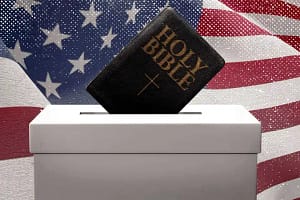
Christianity and Politics: An Intricate Relationship
The relationship between Christianity and politics has shaped societies for centuries, influencing laws, ethical norms, and cultural values. This intricate relationship emerges from the theological principles of Christianity, engages with key historical contexts, and remains prominent in contemporary societal discourse, highlighting the intricate connection between Christianity and politics.
Historical Context
Christianity’s impact on politics can be traced back to its early formation. Initially a persecuted faith, Christianity gained momentum when Emperor Constantine legalized it in the early 4th century. This significant shift intertwined the church with state affairs, leading to a fusion of spiritual and political power. Subsequent historical events, such as the establishment of the Holy Roman Empire and the Reformation, further complicated the relationship between faith and governance, exemplifying the intricate relationship between Christianity and politics.
The Divine Right of Kings
During the medieval period, the concept of the Divine Right of Kings emerged, suggesting that monarchs derived their authority from God. This idea not only legitimized absolute rule but also positioned the church as a significant player in political matters. However, the Reformation, spearheaded by figures like Martin Luther, contested this notion by promoting the idea of individual interpretation of scripture, thus empowering laypersons and challenging ecclesiastical authority. This evolution showcases the complex relationship between Christianity and political power.
Modern Implications
In modern times, Christianity continues to influence political ideologies and practices worldwide. The rise of Christian nationalism in various countries demonstrates how religious beliefs can inspire political movements. Parties that identify as Christian often advocate for policies reflecting their theological views, particularly on issues like abortion, marriage, and education. These examples highlight the ongoing intricate relationship between Christianity and political practices.
The Role of Evangelicalism
In the United States, the role of evangelical Christians in politics has grown exponentially since the late 20th century. The Moral Majority and other organizations mobilized voters around social issues, significantly impacting elections and policy-making. This active engagement raises questions about how faith should inform political action and whether the church should participate in partisan politics, reflecting the intricate relationship between Christianity and political influence.
The Ethical Dilemma
The intersection of faith and politics often leads to ethical dilemmas. Political leaders who profess Christian values face the challenge of reconciling their beliefs with pragmatic governance. Issues like social justice, wealth distribution, and immigration often force Christians to navigate complex moral landscapes. Do they prioritize their faith or adhere to the demands of their political office? These dilemmas arise from the intricate relationship between Christianity and political responsibilities.
The Argument for Separation
Many proponents of the separation of church and state argue that intertwining faith with politics undermines both institutions. They advocate for policies based on reason and universal ethics rather than religious doctrine. This viewpoint emphasizes compassion, inclusivity, and social justice, aligning with the core tenets of Christianity—love, kindness, and service to others. This argument underscores the complex and intricate relationship between Christianity and political structures.
Conclusion
The relationship between Christianity and politics is indeed intricate and multifaceted. As society evolves, the dialogue surrounding the role of faith in governance remains crucial for addressing contemporary challenges. Christians must thoughtfully engage with political issues, ensuring their beliefs encourage compassion and justice while resisting the temptation to conflate faith with partisan agendas. This summary reiterates the intricate connection between Christianity and the political realm.
Navigating this complex landscape requires wisdom and discernment, urging believers to consider how their faith influences their political actions and societal roles. Ultimately, Christianity’s teachings should inspire believers to pursue a political vision grounded in love, integrity, and a commitment to the common good, further emphasizing the intricate relationship between Christianity and political engagement.
When considering the impact of Christianity on politics, it is essential to recognize this relationship as a dynamic interplay rather than a rigid structure, allowing for thoughtful engagement and transformative action in the public sphere, highlighting the intricate and evolving relationship between Christianity and political dynamics.